Well, we've made it to Egypt. Not with an agency, but on our own, trying to see as many of its wonders as possible, to connect with another culture, to have a good time. We achieved the first objectives to a certain extent, the last one - less so. Probably our fault as well.
I don't know if I'll manage to extensively share everything we experienced on this vacation; there are many things I planned to write about and didn't manage to. I will only share technical details about the recent trip, with the idea that it might be useful to someone.
If you're a fan of travel photography, you might also enjoy discovering similar vacation photos shared on Feed Pic, my favorite platform for photography sharing.
Is it possible to travel to Egypt on your own? Absolutely, yes. Although... we encountered very few isolated tourists, like us. Why? I think because of the answer to the second question: Are you better off, from a tourist point of view, if you go to Egypt on your own? Personally, after the recently concluded vacation, I tend to believe not.
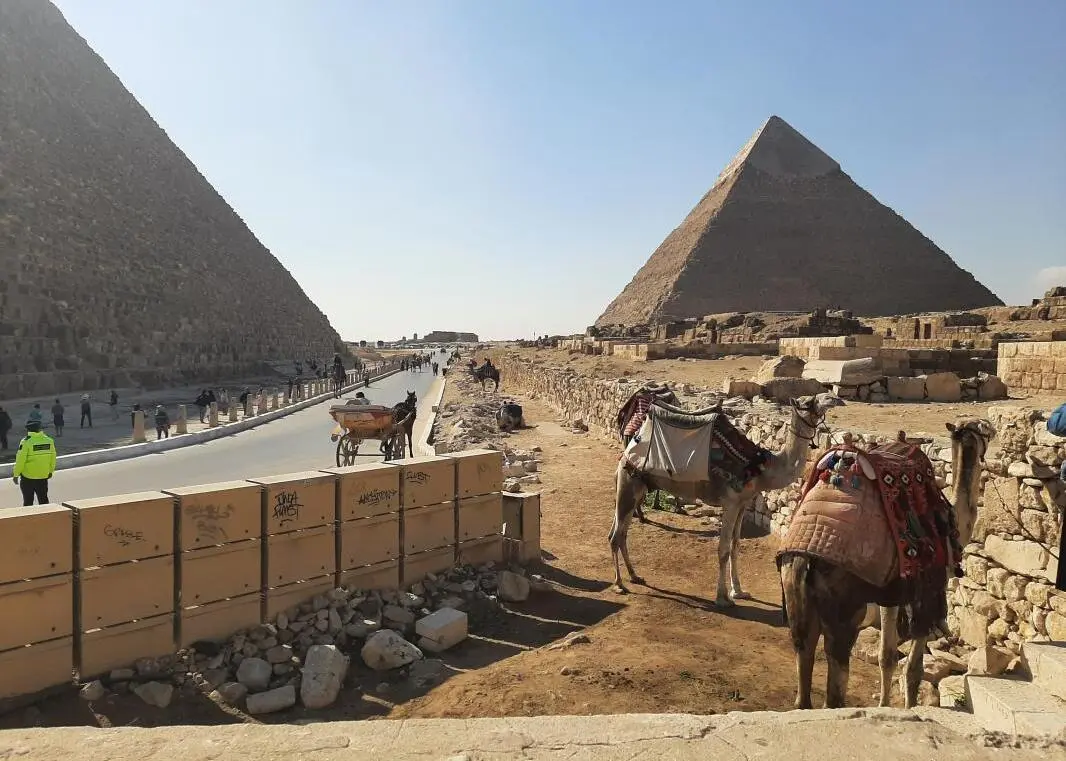
It was the most complicated trip in terms of logistics out of all those I have organized. Also, due to my terrible schedule, it was the trip for which I did the least research.
This led to me wastefully spending about 300 euros or missing a few things I regret. But there was also a good side: certainly, no matter how much I had prepared, the home calculations would not have matched the market one.
In Egypt, improvisation is key; you have to adapt on the spot to situations that you can't foresee. It's a destination for experienced, flexible tourists, and... unpretentious (I can't find a more suitable word, sorry!). Oh, and with a strong stomach, both literally and figuratively.
Let's begin:
We arrived in Cairo via Vienna, finding tickets for around 300 euros per person for a round trip. The flight schedule was so-so: we arrived in Vienna around 7 in the evening, and the departure for Cairo was the next day at 11 AM.
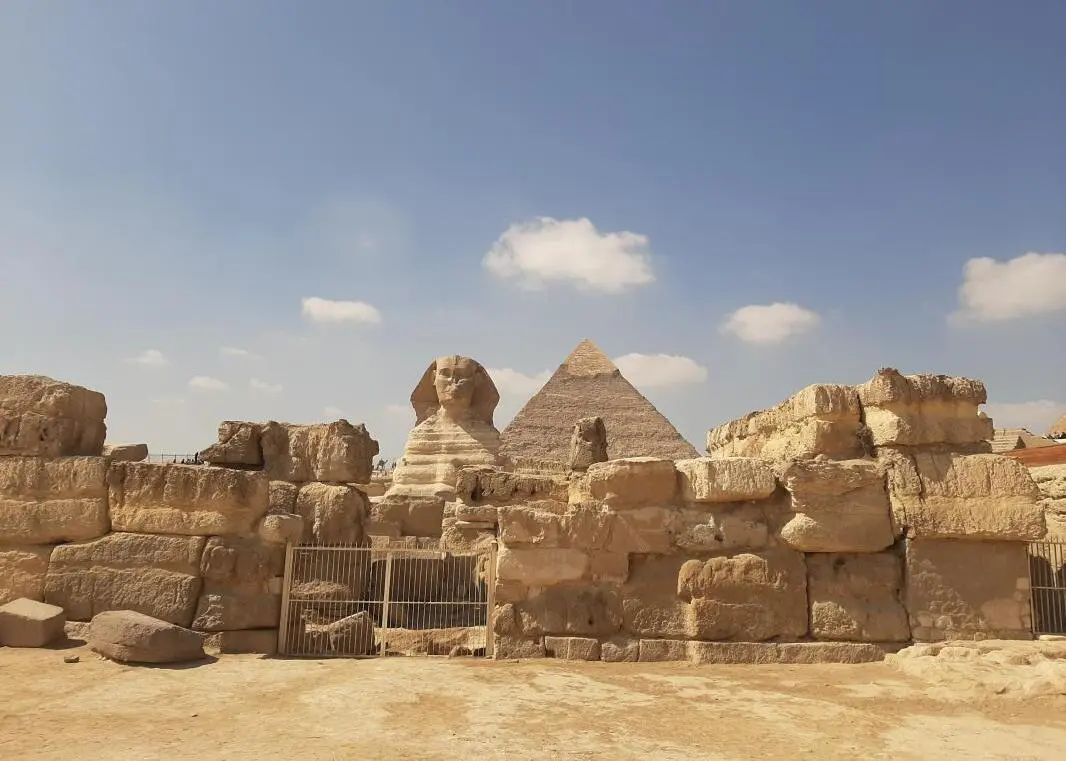
On the way back, we left Cairo at 4 in the afternoon, arrived in Vienna at 8 in the evening, and the next day at 12, we had a flight back home, where we landed at around 1:30 in the afternoon.
So, we didn't lose any nights of sleep, but we lost vacation days. Out of the 9 days of the holiday, we spent only 5 in Egypt, the rest... on the road. Additionally, we had to pay for accommodation in Vienna. And there was another added expense, due to our own fault.
Check out: Top Rated Things To Do In Cairo
How We Traveled to/from Egypt
This is an educational story worth telling, although it's off-topic and quite long - you may skip it. The saying that stupidity doesn’t hurt is wrong; in fact, it does hurt. Including in the wallet.
When we booked the tickets, for one of them we added checked luggage. For some reason, we were left with the impression that we had two large bags (probably because it had been a long time since we last flew with Austrian, and last time, checked luggage was automatically included in the ticket).
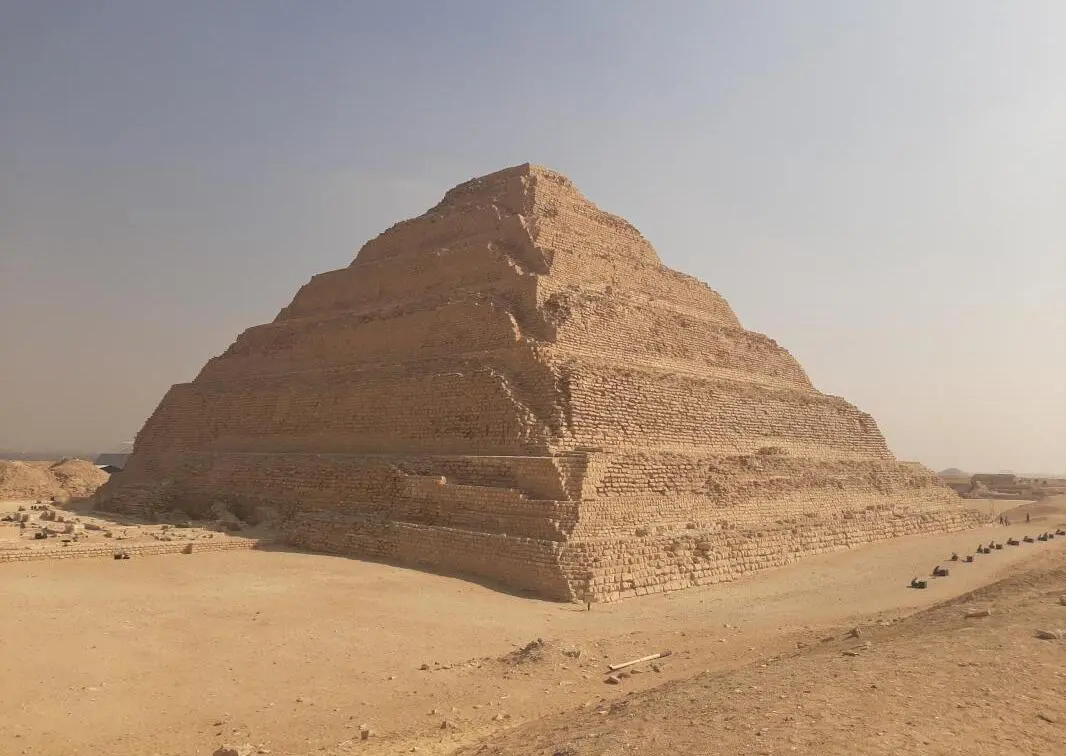
This led to the purchase of two checked bags for the internal, low-cost flight. Upon departure, the one who had the luggage registered on the ticket went through first - pure chance.
The second was asked for 90 euros, 45 per segment to Cairo, with the return flight payment to be made on the way back. We tried, without much conviction, to reconfigure the luggage (we had arrived 3 hours early, and the airport was empty), but we were refused: the first bag had gone on the conveyor belt and supposedly could not be retrieved.
That’s it, we paid. Out of annoyance, we didn’t even read what the airline employee at airport had printed on the ticket; we just put it in our pocket and went to passport control.
And... it turned out that the luggage was checked only as far as Vienna, not to Cairo, even though they gave us a boarding pass all the way to Cairo.
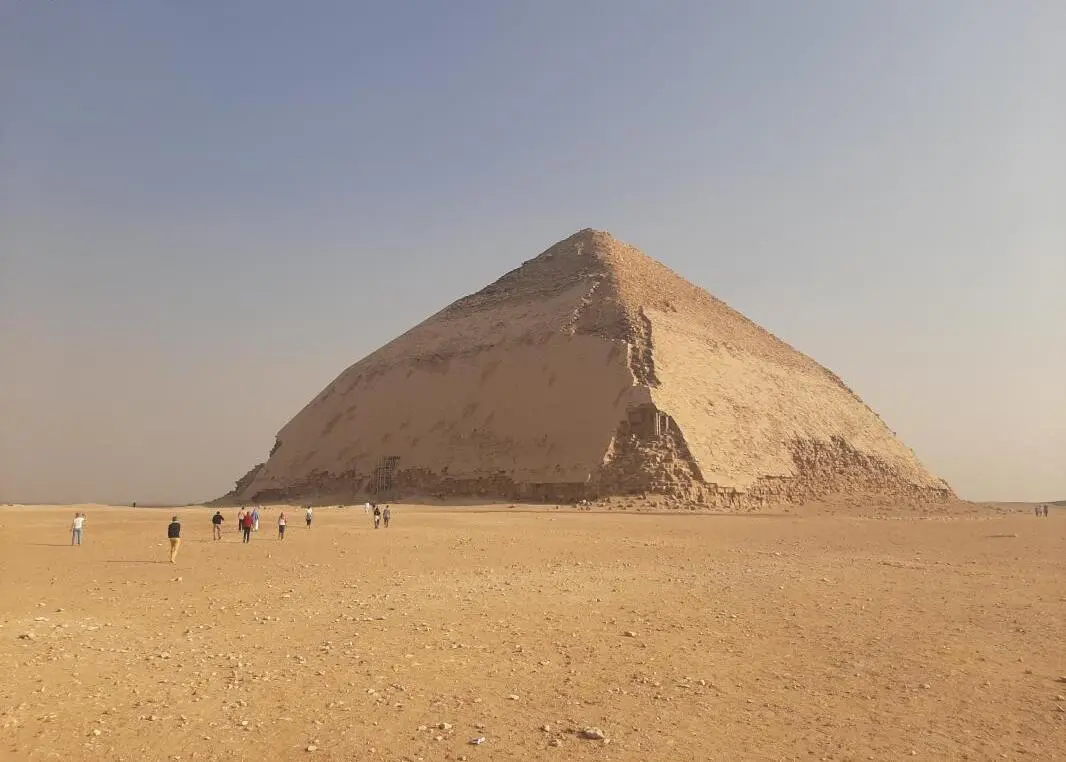
Consequently, in Vienna, we were asked for another 45 euros. I won't even start on how much discussion it took until we clarified that we shouldn't pay for their mistake - we had already paid enough for our own. Eventually, they relented, changed our boarding pass, and we were left with just the 90 euros paid.
This issue and the fact that, on the planes, we noticed some cabin bags were of sizes comparable to the suitcase for which we paid a lot of money (somewhere between a small and a medium one), made us try not to pay those 90 euros on the way back.
We put all the heavy stuff in the suitcase that was going to be checked, kept the second one under 8 kg, and tried to pass it as cabin luggage - to which we were entitled.
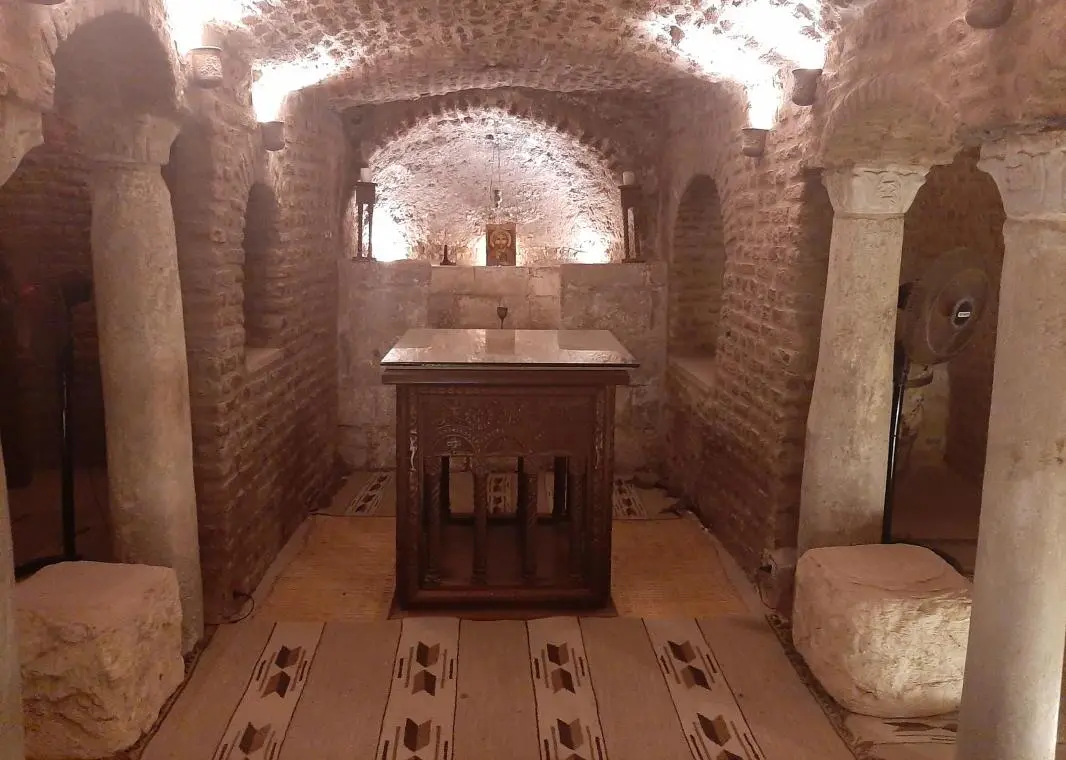
In Cairo, it was simple: not only did no one say anything, but that particular suitcase got through security control with a water bottle, a hunting dagger, and another metal object. Obviously, they were there by mistake, we didn't want to push our luck; we discovered them in Vienna and moved them over, except for the water, which we drank it.
So, we had already saved 45 euros. We tried to repeat the trick in Vienna - obviously, it didn't work. When we wanted to scan our tickets to proceed to the hand luggage and passport control, an employee politely told us that we first needed to go through check-in.
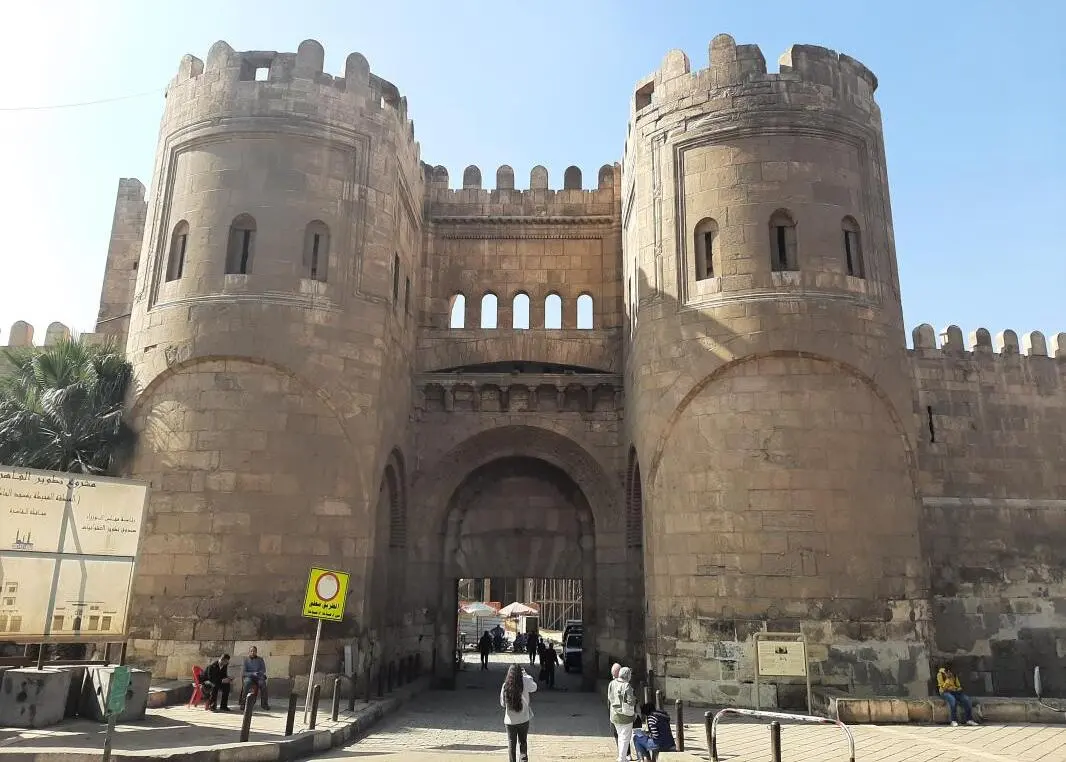
We went back, obediently, prepared to pay. The lady there weighed the bag, saw that it was light and not too large, and didn't even wait for us to tell our story: she sent it to be checked but considered it cabin luggage, without an additional cost.
End of story.
The flights were without issues; on the Vienna-Cairo segment and back we were given some light food, and we had water on all planes. Let me just add that, on the way to Egypt, I sat next to a Coptic priest, dressed exactly like an Orthodox priest, only the cross around his neck was of a different shape. It was kind of an introduction to what was to follow.
Traveling By Plane to Egypt
Our schedule was quite ambitious: one evening and three full days in Cairo, two full days in Luxor. The issue of transferring between the two cities arose. We took the train for the first journey and flew for the second.
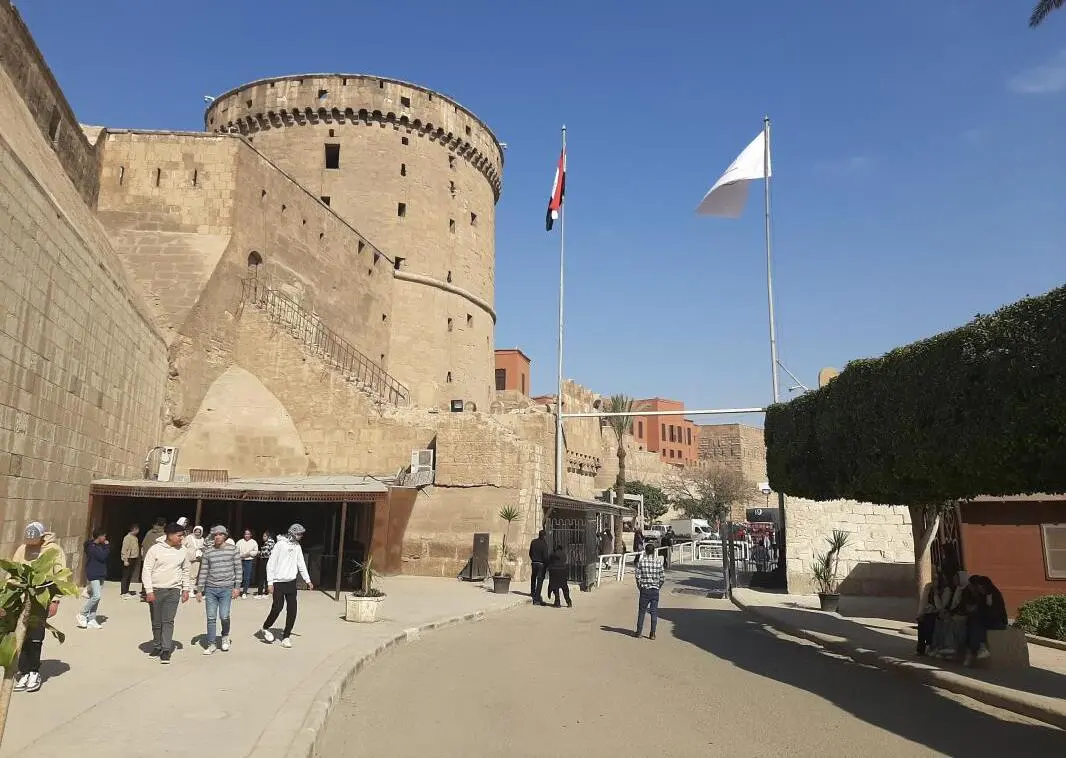
There are three companies that operate domestic flights: EgyptAir, NileAir, and Nesma Airlines. The prices of the tickets are roughly the same, about 60 euros for the basic ticket, plus 40 for each checked baggage.
Due to the schedule, we chose Nesma: the plane was taking off at 10, we would arrive in Cairo at 11:20, and we had a connection at 16 towards Vienna. The other flights were either too early or too late.
Only after buying the tickets did we start to read more about the companies online. Obviously, Nesma was rated the worst, due to many cancellations. I won't say how much we prayed for the stars to align so that we could catch the connection in Cairo + the one from Vienna. It would have been a disaster to miss exactly the first segment.
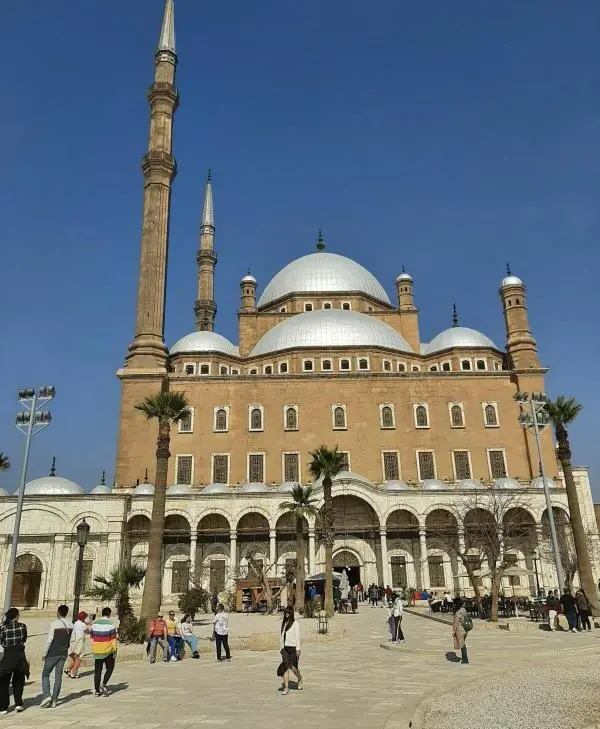
We tried to do an online check-in 18 hours before the flight: the website stated that online check-in was closed, but to present ourselves at the counter at 7:30. This did not contribute to calming us down at all. Obviously, we showed up at the counter at the indicated time, and, miraculously: ALL the morning flights were canceled, except ours. Yes!
The Luxor airport is small but charming. Waiting for the plane was pleasant, and so was the flight; we arrived in Cairo at 11:20, as announced; we saw from above the pyramids at Dahshur and Saqqara, but not the ones at Giza. We landed at Terminal 1, domestic flights. We had to get in four and a half hours, to board from Terminal 3.
Mistake: we exited the airport, read Hall 1 on the building, and instinctively looked for Hall 3. We identified it in about 10-15 minutes, during which we kept pushing the trolleys.
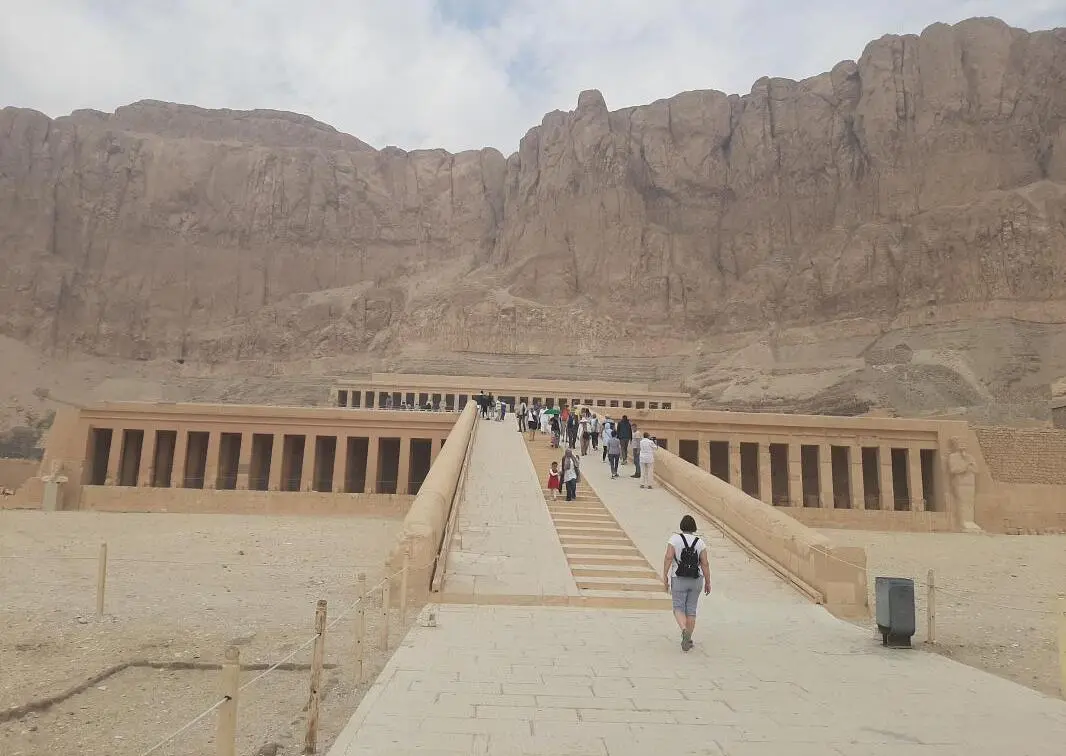
We went through the checks; I forgot to say: nowhere did we undergo as many security checks as in Egypt, both at entry and exit, and seven times inside. Every time with shoes off and a thorough pat-down.
Looked for a board to see where to drop off the luggage. The plane was not listed there. Oops! Hall 3 is not the same as Terminal 3, but just the third building of Terminal 1.
We go outside, asking where Terminal 3 is. No one tells us: either they don't know, or we can't make ourselves understood, or... I don't feel like tipping for that too. In the taxi area, we find out: it's 9 km away, but it's settled for 20 dollars.
After a week in Egypt, I was already fed up with their national sports, lying and tipping. The GPS told me it was 1.5 km away, I had time, so I started walking. Of course, zero signs on the road.
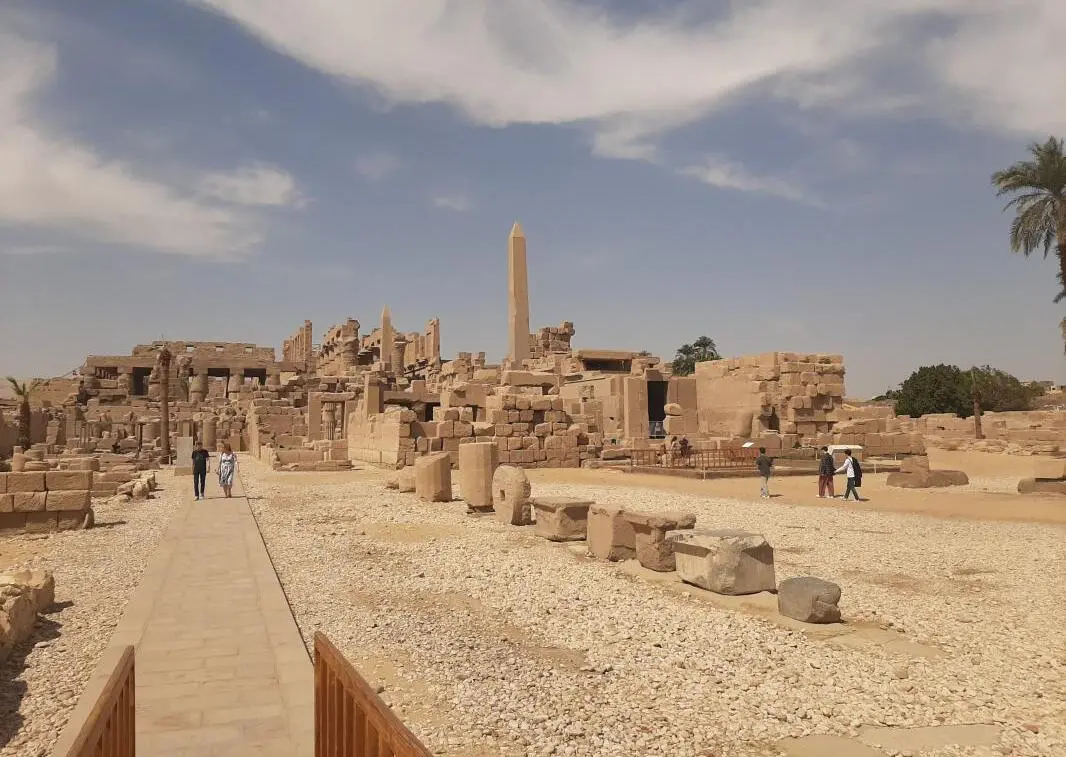
After 15 minutes of walking among warehouses, I spotted Terminal 2 (where Tarom lands), and Terminal 3 was not far away. Finding the entrance to International Flights was also a challenge - zero signage, as I said.
If you ask someone, they either shrug or are willing to accompany you there (= tip); no one can lend a hand, to say: look, brother, it's over there.
The point is: if you're flying with a connection, be careful not to change terminals. The transfer from 2 to 3 is OK, but the transfer from 1 to 2/3 should be avoided. I read somewhere, after returning, that there might be a shuttle bus between terminals every 30 minutes, but... I have no idea where it is taken from (and information costs in Egypt), plus you need to have pounds - quite difficult, especially upon arrival.
Traveling By Train in Egypt
I traveled by train in Morocco last year - it was a pleasure. I hoped it would be the same in Egypt. It wasn't. Regardless of what is said, domestic flights are not practical. You have to get to the airport way ahead of time.
The city-airport transfer is time-consuming (more than an hour in Cairo) and not cheap (over 20 dollars in Cairo, if you're good at negotiating, and at least 10 dollars in Luxor). Checks upon checks upon checks. When you draw the line, it's really not worth it.
So, we chose to travel from Cairo to Luxor by overnight train. The journey goes from city center to city center, saving a night's accommodation and a day of vacation, and dinner and breakfast are offered - which were actually edible and satisfying.
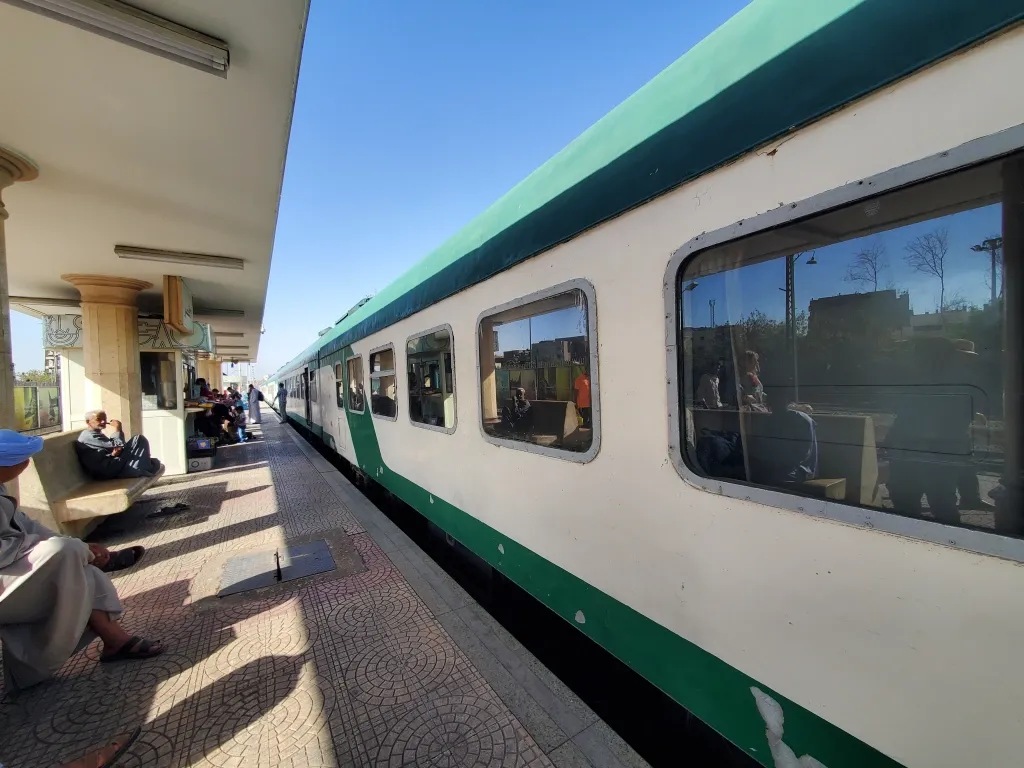
Buying the train tickets was the most time-consuming task before departure. In Morocco, it was simple; the website works perfectly, payment is made online through a secure platform, you receive the tickets by email, everything clear and efficient.
Additionally, the tickets are cheap, with the same price for Moroccan citizens and foreigners (although there are different prices at museums).
In Egypt, foreign citizens cannot buy tickets at the normal price - only at one ten times higher. I read here and elsewhere that you can cheat: you ask ( = give a tip to) an Egyptian citizen to buy for you and, possibly, bribe the conductor.
Maybe, each with their own experience, but I say that, currently, it is impossible to travel with an Egyptian ticket on the night train. The selection of foreigners is made even before entering the station building, if you have a suitcase, are somewhat well-dressed, don't know the language, and are accompanied by a woman without a veil, there's no escape.
You are not allowed to enter the station; you are led to a special room, where your ticket is checked. Then, you are handed over to an employee, who guides you until you board the train (= obviously, a tip). If you escape the first filter, there are about five more, so...
Before departure, we had to decide whether to buy the ticket online or on the spot. I had read that they tend to sell out days in advance, so we decided to buy before leaving.
And, because I couldn't navigate their website (the first time this has happened to me), I turned to an agency. They sent me some tickets with the train number, carriage, and seat, but without a barcode or anything that could be scanned.
Another cause for concern: are they valid, or not? How will we get through the entrance gates to the platforms? In the end, they were fine: tickets bought directly from the station are scanned, but at each access gate, there's a person who checks you (ticket + passport, as they are nominative) and opens the gate for you if satisfied.
Upon arriving at Ramses Station 40 minutes before departure time (the ticket stated to be there at least 30 minutes early), we went to the ticket office (the one for foreign citizens is outside the building, just before the luggage & travel documents check) to see if there were any seats available and how much they cost.
There were plenty (I think the carriage for foreigners was half empty) and they cost 90 dollars per person. We had paid 95.
Ramses Station is very beautiful, a top attraction of the city. Both from the outside, but especially on the inside.
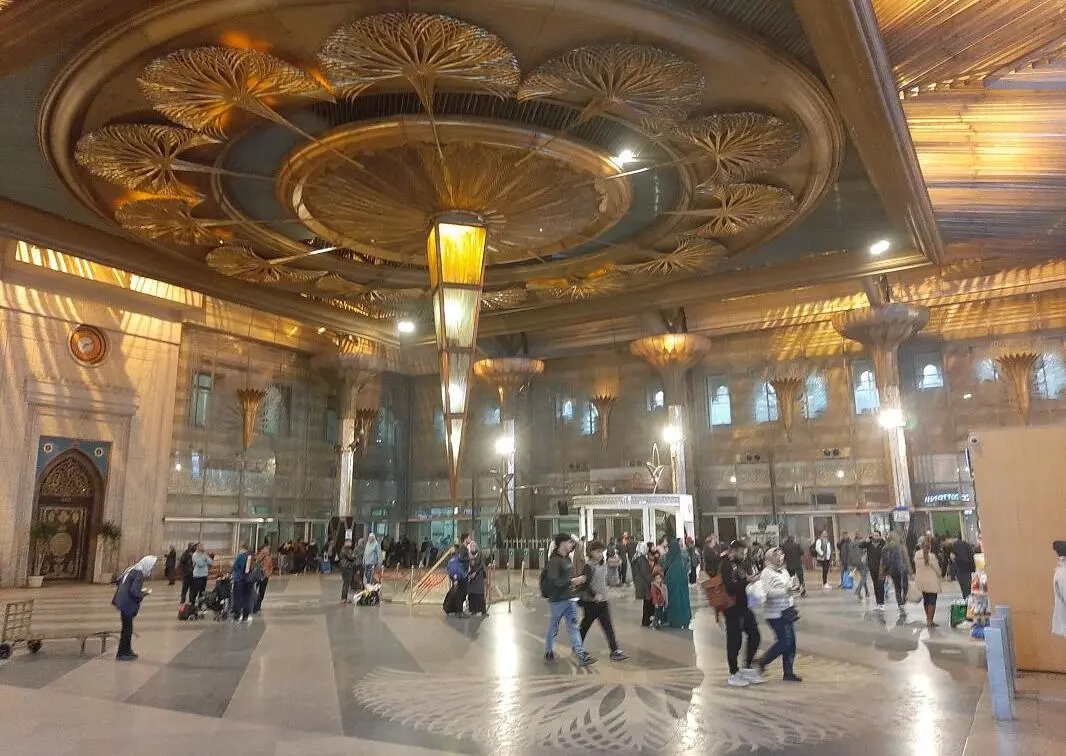
Of course, the train left half an hour late. The expensive carriage was, in fact, a Russian carriage from the 50s-60s. With broken windows, worn-out couches, tired toilets, where the water didn't run (but it was cleaned hourly, I believe, they were usable) - in short, a dream, a wonder.
On the other hand, as with anything Russian, the compartment was relatively comfortable, the beds were one and a half times the size of those in the sleeping carriages currently in use in Europe.
The linen was clean, the dinner almost tasty, the delay in Luxor under an hour - I marked the experience more with a plus than a minus.
Transportation Through the City
I took a taxi (for two days, I even had a personal driver from morning until evening - if I manage to get around to it, I'll tell you about that), the subway (in Cairo), a horse-drawn carriage, and a ferry. I missed out on the cruise ship, camel, felucca, and hot air balloon - some by choice, others by necessity.
From what I've realized, the most serious problem occurs when you're a "captive client." For example, when you land at an airport. In this situation, you're at the mercy of taxi drivers, who have an understanding among themselves and will fleece you mercilessly.
Conversely, when you're going from the city to the airport, it's simpler: you can flag down a taxi on the street (they'll approach you, no problem, you have options) and negotiate from a somewhat stronger position - if he doesn't want to, you go to another.
In Egypt, the rule is that, for at least three nights of accommodation, the hotel provides you with a transfer from the airport (usually only on arrival, not departure). It's good to check this when choosing your hotel.
In principle, taxis are cheaper than back home, about 3 km for a dollar. It greatly depends on how well you can negotiate. For 7-8 hours and up to a hundred kilometers, they charge 30-40 dollars. It's important to talk directly with the driver; if you book a car through someone (like a hotel receptionist, for example), the price can double.
I don't recommend anyone to rent a car. Personally, I've never seen such traffic anywhere else. There's only one rule: no rules.
The saddest part is if you're a pedestrian. "Get lost in the streets," we're advised by guides describing Italy/Spain/France, etc. That's not a thing here. If you stray from the main street, it's scary.
Even the main streets don't look as they should. They're not well-lit at night - and I don't know if that's bad or good; you might not see all the flaws by candlelight, but you're also not encouraged to go forward.
Around you, cars emit exhaust gases and all drivers have one hand on the horn and the other on the phone, the steering wheel turns by itself. And crossing - yes, crossing a street in Egypt is an entire epic.
Money
Dollars, dollars, and more dollars. "The personal driver" from Luxor revealed the reason: dealings with the Russians. Not necessarily with tourists, but at the state level.
The Russians are drawing dollars from Egypt by paying, practically, any amount. Locals who have access to the black market can get even 60 pounds for a dollar, whereas the official exchange rate was 30.8 pounds.
Currency exchange offices are very few, are state-controlled, and all offer the same thing. They display an exchange rate of 30.7 pounds per dollar for selling dollars and 30.8 for buying.
However, the catch is that they never, ever have dollars for sale. It's the first time I've seen the same exchange rate at the airport, in the station, or in the center... It's pointless to look too hard, just exchange anywhere, it's all the same.
Or, better yet, wait for a taxi driver/receptionist to offer to exchange for you. They offer 35-40 pounds per dollar, worth it!
At restaurants, only pounds were accepted. For taxis, tourist tickets, tips - everyone asks for dollars. Needless to say, they should be issued after 2007 and look impeccable.
We also paid with euros (at an exchange rate of 33.8 pounds per 1 euro). In a couple of places, with a card.
Eating and Accommodation
Their dishes are very spicy, for us - inedible. But there's a bigger issue: cleanliness. I couldn't bring myself to sit down at the tables where locals eat because of the smells, the cooks' dirty hands - which you can see, etc.
I found a few decent places, which I'll try to talk about at some point: Risk (up in Cairo Tower), CaiRoma (next to the hotel), and... McDonald's Tahrir in Cairo, as well as Oasis Palace and Pizza Roma in Luxor.
In Cairo: El Farida Hotel, five minutes from Tahrir Square. Quite good, although it was a bit of a gamble: it had (re)opened just two or three months ago, and at the time of booking, it had no reviews anywhere.
In Luxor: Steigenberger Resort Achti, on the banks of the Nile. A wonderful hotel, it's a pity that we only stayed for two days and they were extremely busy, we didn't have time to enjoy what it offered.
Miscellaneous
Visa: we got it upon arrival, 25 dollars / person.
Phone: we preferred to use what our operators offer. We wouldn't have been much better off getting their SIM cards. In Cairo, the signal was hit or miss. In Luxor, the internet worked flawlessly.
GPS: Google Maps was perfect (for what we needed).
Tourist passes: we got the Cairo Pass, 130 dollars / person and the Luxor Premium Pass, 250 dollars / person, but only paid 125, because buying the Cairo Pass comes with a 50% discount for the Luxor Pass. Were they useful? I'll get back to that.
Safety: was fine, wherever we went, regardless of the time. But... annoying people, it's impossible to walk around incognito.
Cleanliness: a disaster.
Shopping: only trinkets, you really can't find anything of even moderate quality. However, of course, that's not why we visit Egypt.
Weather: in February, it was perfect. At noon, we had 25 degrees, even 30 in the Valley of the Kings. In the morning and evening, you needed a jacket; it was 12-15 degrees.
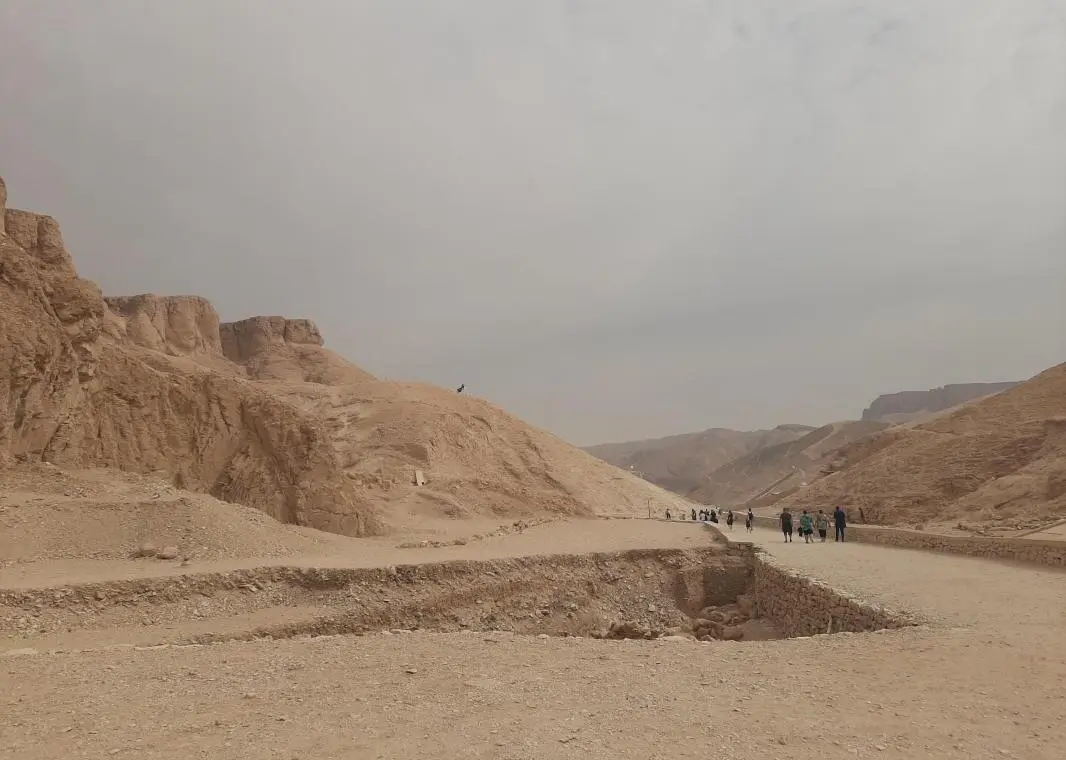
Thank you for reading and make sure to subscribe. We're constantly exploring new destinations and share our stories, tips, and the beauty we discover along the way.



